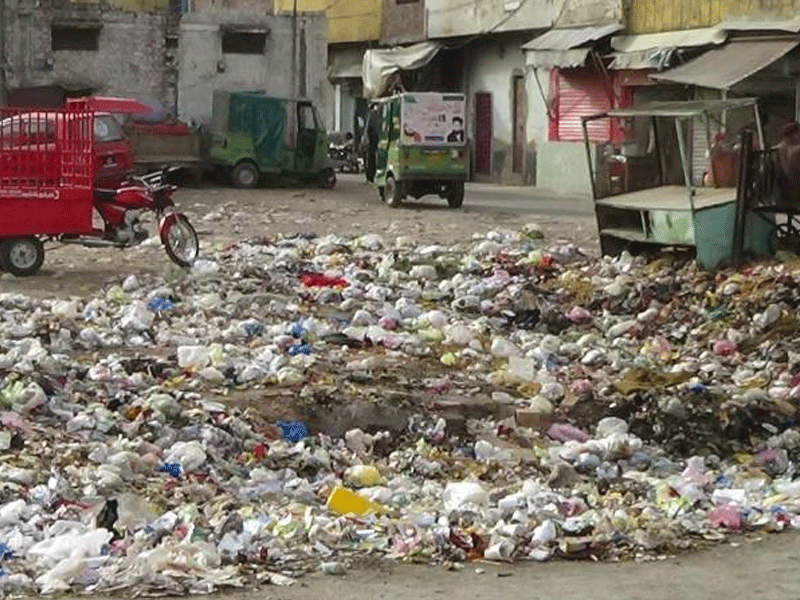Littering - A man made evil

- 255
- 0
Littering is one of the biggest environmental issues we face on daily basis. Littering affects us all, from humans to animals and our surroundings. The careless act of littering from a simple piece of plastic thrown on the ground can clog storm drains or that piece of plastic may go straight to the ocean and harm wildlife. Littering is a health hazard which causes harmful bacteria and germs.
Littering does not only pollute the ground water supply but also our oceans. Tons of litter gets dumped into the ocean each year. Citizens all along the coast simply take their garbage and toss it into the water.
There have even been reports of giant garbage balls floating in the ocean. If we are throwing it away because we don’t want to live with it, why would our marine life? This trash is causing huge environmental problems including fish endangerment. Thousands of fish are slayed on a daily basis, causing many species’ population to become scarce. Imagine it’s a beautiful colder winter day, and you’re out with your friends and family for coffee near sea side. You finish your coffee cups and look around, but there’s no trash can for your empty cup. It’s okay to just leave it on the sea shore, right? Nobody can even see it in the dark.
You don’t want to carry around this gross, sticky coffee cup. You might think it’s acceptable, but it’s not. Leaving your empty cup on the sea shore is littering. The more we litter, the more it becomes a habit and it destroys our environment. Government spends lot of money just to clean up the litter that many people tossed out on the public areas without thinking how bad it is.
If anyone thinks about the effects of litter, imaging how much money could be saved and used for more important services. The unanimous adoption of a law by the Senate Standing Committee on Climate Change against litter scavengers in the country indicates that climate change, which is currently a global issue, and the beloved homeland are also affected by climate change. It is rightly said that our culture of littering is very sad and reprehensible.
Garbage and piles of rubbish are spoiling the beauty of cities across the country, while inorganic waste is a major cause of contamination of waterways and water bodies. It is a sad fact that some of our social attitudes and habits are in no way related to the behaviour of civilized nations. In Pakistan, spreading dirt outside the home has also become a social phenomenon.
Our rivers, seas and airspace, which used to be very transparent, are also getting polluted due to this practice. In view of the need to change this practice, a law was passed but the fact cannot be ignored that the system of sanitation at the administrative level which was functioning effectively in the early years of establishment of Pakistan cannot be ignored.
Lack of checks and balances gradually led to disaster. A clear example of this is the piles of rubbish spread in the city of Quaid, which unfortunately do not seem to have a comprehensive and effective administrative effort to clean up. While there are laws and institutions for disposing of industrial and hospital waste, they are not properly enforced.
The practice of littering has become second nature, we have avoided to educate ourselves on how this affects us in the long run. Littering needs to be minimized or if possible, completely stopped if we could help it because we are doing more harm to the earth. Sometimes when we knowingly or unknowingly throw litter, we don’t realise it might become inconvenient for someone to clean it up later.
Although in cities, there are people who do go about cleaning, sometimes it is delayed. It is also expensive. Every year, a city’s administration spends lots of money to clean up the city on a daily basis and dispose it off. Some of our litter is biodegradable and some of it is not. And lots of people spend time and energy to make sure our cities and town are clean and healthy for us to live. Last year in Karachi, the rainy season had come across this issue.
Just because of littering, many sewerage lines, gutters and nalas were chocked and there was a glimpse of flood in urban city. Why? because of the habit of spoiling / littering of the citizens.
We have the power to control our waste and stop litter altogether. The main cause of littering is laziness and a lack of education. Society needs to be educated on the potentially dangerous aspects of littering. Education will play a vital role in saving our planet. We have to act as a community, someone has to step up. People following the no littering law would bring about safer and more beautiful communities. Earth would have more natural beauty, there would be less scavengers, and less diseases. Reducing litter is as easy as three steps: pick up, throw away, and educate others.
Published in The Daily National Courier, November, 10 2022
Like Business on Facebook, follow @DailyNCourier on Twitter to stay informed and join in the conversation.

















































